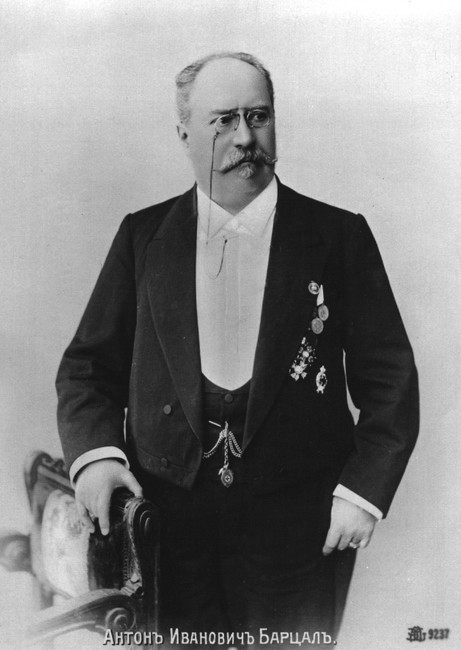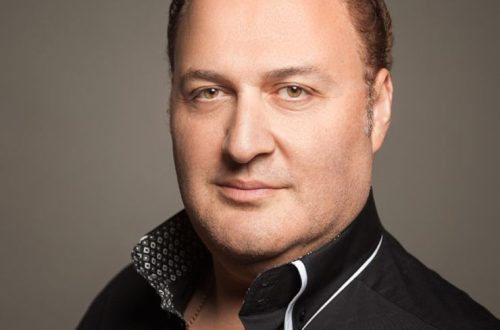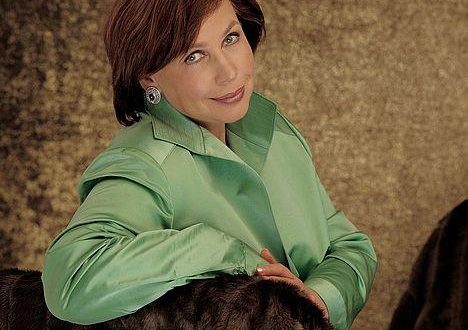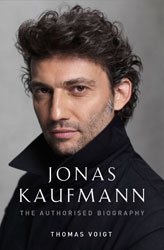
Anton Ivanovich Bartsal |
Anton Bartsal
Anton Ivanovich Bartsal is a Czech and Russian opera singer (tenor), concert singer, opera director, vocal teacher.
Born May 25, 1847 in České Budějovice, South Bohemia, now the Czech Republic.
In 1865 he entered the Vienna Court Opera School, while attending the music and declamation classes of Professor Ferchtgot-Tovochovsky at the Vienna Conservatory.
Bartsal made his debut on July 4, 1867 at a concert of the Great Singing Society in Vienna. In the same year he made his debut (part of Alamir in Belisarius by G. Donizetti) on the stage of the Provisional Theater in Prague, where he performed until 1870 in operas by French and Italian composers, as well as by the Czech composer B. Smetana. The first performer of the part of Vitek (Dalibor by B. Smetana; 1868, Prague).
In 1870, at the invitation of choral conductor Y. Golitsyn, he toured Russia with his choir. From the same year he lived in Russia. He made his debut as Masaniello (Fenella, or the Mute from Portici by D. Aubert) at the Kyiv Opera (1870, entreprise F. G. Berger), where he performed until 1874, as well as in the 1875-1876 season and on tour in 1879.
In the summer seasons of 1873 and 1874, as well as in the season of 1877-1978, he sang at the Odessa Opera.
In October 1874 he made his debut in the opera “Faust” by Ch. Gounod (Faust) on the stage of the St. Petersburg Mariinsky Theatre. Soloist of this theater in the season 1877-1878. In 1875 he performed in St. Petersburg two scenes and duets from the opera “Christmas Night” by N. Lysenko.
In 1878-1902 he was a soloist, and in 1882-1903 also the chief director of the Moscow Bolshoi Theater. The first performer on the Russian stage of roles in Wagner’s operas Walter von der Vogelweide (“Tannhäuser”), and Mime (“Siegfried”), Richard in the opera Un ballo in maschera by G. Verdi), as well as Prince Yuri (“Princess Ostrovskaya” G. Vyazemsky, 1882), Cantor of the synagogue (“Uriel Acosta” by V. Serova, 1885), Hermit (“Dream on the Volga” by A. S. Arensky, 1890). He performed the roles of Sinodal (“Demon” by A. Rubinstein, 1879), Radamès (“Aida” by G. Verdi, 1879), Duke (“Rigoletto” by G. Verdi, in Russian, 1879), Tannhäuser ( “Tannhäuser” by R. Wagner, 1881), Prince Vasily Shuisky (“Boris Godunov” by M. Mussorgsky, second edition, 1888), Deforge (“Dubrovsky” by E. Napravnik, 1895), Finn (“Ruslan and Ludmila” by M. Glinka), Prince (“Mermaid” by A. Dargomyzhsky), Faust (“Faust” by Ch. Gounod), Arnold (“William Tell” by G. Rossini), Eleazar (“Zhidovka” by J. F. Halevi) , Bogdan Sobinin (“Life for the Tsar” by M. Glinka), Bayan (“Ruslan and Lyudmila” by M. Glinka), Andrey Morozov (“Oprichnik” by P. Tchaikovsky), Trike (“Eugene Onegin” by P. Tchaikovsky), Tsar Berendey (The Snow Maiden by N. Rimsky-Korsakov), Achior (Judith by A. Serov), Count Almaviva (The Barber of Seville by G. Rossini), Don Ottavio (Don Giovanni by W. A. Mozart, 1882) , Max (“Free Shooter” by K. M. Weber), Raoul de Nangi (“Huguenots” by J. Meyerbeer, 1879), Robert (“Robert the Devil” by J. Meyerbeer, 1880), Vasco da Gama (“The African Woman” by G. Meyerbeer), Fra Diavolo (“Fra Diavolo, or the Hotel in Terracina” by D. Aubert), Fenton (“Gossips of Windsor” by O. Nicolai), Alfred (“La Traviata” by G. Verdi) , Manrico (“Troubadour” by G. Verdi).
He staged forty-eight operas on the stage of the Moscow Bolshoi Theatre. He was a participant in all the new productions of operas of that time on the stage of the Bolshoi Theater. Director of the first productions of operas: “Mazepa” by P. Tchaikovsky (1884), “Cherevichki” by P. Tchaikovsky (1887), “Uriel Acosta” by V. Serova (1885), “Taras Bulba” by V. Kashperov ( 1887), “Mary of Burgundy” by P. I. Blaramberg (1888), “Rolla” by A. Simon (1892), “Beltasar’s Feast” by A. Koreshchenko (1892), “Aleko” by S. V. Rachmaninov (1893), “The Song of Triumphant Love” by A. Simon (1897). Stage director of the operas The African Woman by J. Meyerbeer (1883), Maccabees by A. Rubinstein (1883), The Nizhny Novgorod People by E. Napravnik (1884), Cordelia by N. Solovyov (1886) ), “Tamara” by B. Fitingof-Schel (1887), “Mephistopheles” by A. Boito (1887), “Harold” by E. Napravnik (1888), “Boris Godunov” by M. Mussorgsky (second edition , 1888), Lohengrin by R. Wagner (1889), The Magic Flute by W. A. Mozart (1889), The Enchantress by P. Tchaikovsky (1890), Othello by J. Verdi (1891), The Queen of Spades by P. Tchaikovsky (1891), Lakmé by L. Delibes (1892), Pagliacci by R. Leoncavallo (1893), Snow Maiden by N. Rimsky -Korsakov (1893), “Iolanta” by P. Tchaikovsky (1893), “Romeo and Juliet” by Ch. Gounod (1896), “Prince Igor” by A. Borodin (1898), “The Night Before Merry Christmas” by N. Rimsky-Korsakov (1898), “Carmen” by J. Bizet (1898), “Pagliacci” by R. Leoncavallo (1893), “Siegfried” by R. Wagner (in Russian, 1894 .), “Medici” by R. Leoncavallo (1894), “Henry VIII” by C. Saint-Saens (1897), “Trojans in Carthage” by G. Berlioz (1899), “The Flying Dutchman” by R. Wagner (1902), “Don Giovanni” by W. A. Mozart (1882), “Fra Diavolo, or Hotel in Terracina” D Ober (1882), “Ruslan and Lyudmila” by M. Glinka (1882), “Eugene Onegin” by P. Tchaikovsky (1883 and 1889), “The Barber of Seville” by G. Rossini (1883), “William Tell” by G. Rossini (1883), “Askold’s Grave” by A. Verstovsky (1883), “Enemy Force” by A. Serov (1884), “Zhidovka” by J. F. Halevi (1885) .), “Free Shooter” by K. M. Weber (1886), “Robert the Devil” by J. Meyerbeer (1887), “Rogneda” by A. Serov (1887 and 1897), “Fenella, or Mute from Portici” by D. Aubert (1887), “Lucia di Lammermoor” by G. Donizetti (1890), “John of Leiden” / “Prophet” by J. Meyerbeer (1890 and 1901), “Un ballo in masquerade “G. Verdi (1891), “Life for the Tsar” M. Glinka (1892), “Huguenots” by J. Meyerbeer (1895), “Tannhäuser” by R. Wagner (1898), “Pebble » S. Moniuszko (1898).
In 1881 he toured to Weimar, where he sang in the opera Zhydovka by J. F. Halévy.
Bartsal performed a lot as a concert singer. Every year he performed solo parts in the oratorios of J. Bach, G. Handel, F. Mendelssohn-Bartholdy, W. A. Mozart (Requiem, conducted by M. Balakirev, in ensemble with A. Krutikova, V. I. Raab, I. I. Palechek), G. Verdi (Requiem, February 26, 1898, Moscow, in ensemble with E. Lavrovskaya, I. F. Butenko, M. Palace, conducted by M. M. Ippolitov-Ivanov), L Beethoven (9th symphony, April 7, 1901 at the grand opening of the Great Hall of the Moscow Conservatory in an ensemble with M. Budkevich, E. Zbrueva, V. Petrov, conducted by V. Safonov). He gave concerts in Moscow, St. Petersburg.
His chamber repertoire included romances by M. Glinka, M. Mussorgsky, P. Tchaikovsky, R. Schumann, L. Beethoven, as well as Russian, Serbian, Czech folk songs.
In Kyiv, Bartsal participated in concerts of the Russian Musical Society and in the author’s concerts of N. Lysenko. In 1871, in Slavic concerts on the stage of the Kyiv Nobility Assembly, he performed Czech folk songs in national costume.
In 1878 he toured with concerts in Rybinsk, Kostroma, Vologda, Kazan, Samara.
In 1903, Bartsal received the title of Honored Artist of the Imperial Theatres.
In 1875-1976 he taught at the Kiev Musical College. In 1898-1916 and in 1919-1921 he was a professor at the Moscow Conservatory (solo singing and head of the opera class) and at the School of Music and Drama of the Moscow Philharmonic Society. Among the students of Bartsal are singers Vasily Petrov, Alexander Altshuller, Pavel Rumyantsev, N. Belevich, M. Vinogradskaya, R. Vladimirova, A. Draculi, O. Dresden, S. Zimin, P. Ikonnikov, S. Lysenkova, M. Malinin, S. Morozovskaya, M. Nevmerzhitskaya, A. Ya. Porubinovskiy, M. Stashinskaya, V. Tomskiy, T. Chaplinskaya, S. Engel-Kron.
In 1903 Bartsal left the stage. Engaged in concert and teaching activities.
In 1921, Anton Ivanovich Bartsal left for Germany for treatment, where he died.
Bartsal had a strong voice with a pleasant “matte” timbre, which in its coloration belongs to baritone tenors. His performance was distinguished by impeccable vocal technique (he skillfully used falsetto), expressive facial expressions, great musicality, filigree finishing of details, impeccable diction and inspired playing. He showed himself especially brightly in characteristic parties. Among the shortcomings, contemporaries attributed the accent, which prevented the creation of Russian images, and the melodramatic performance.





